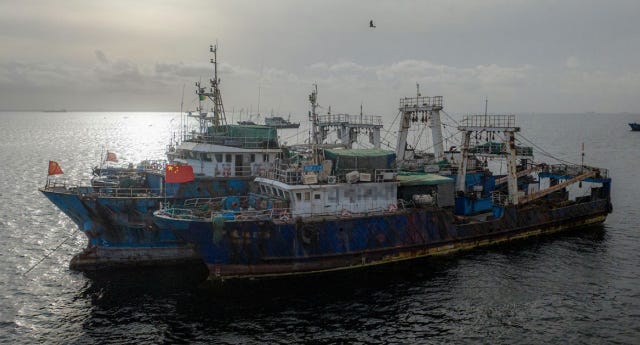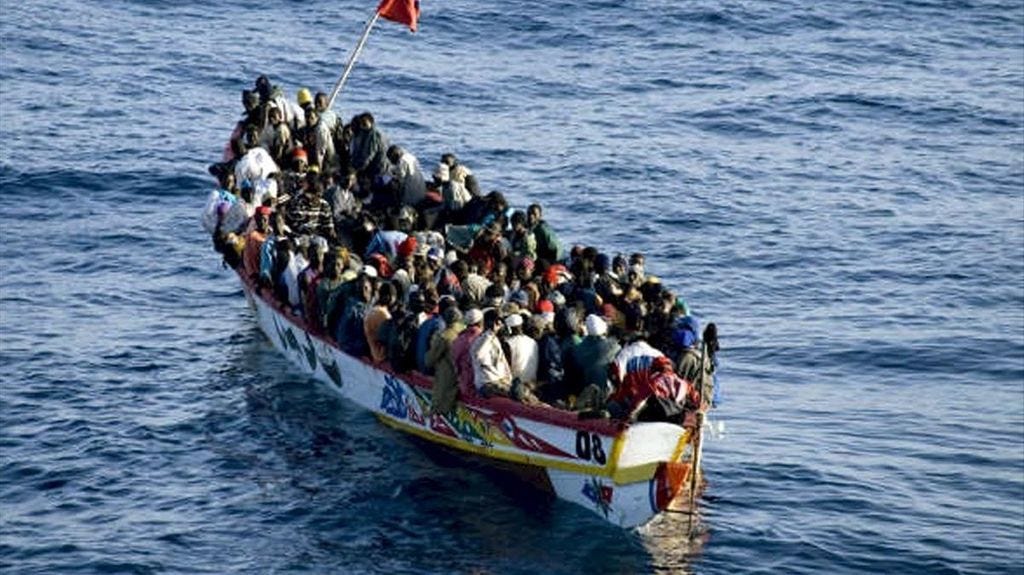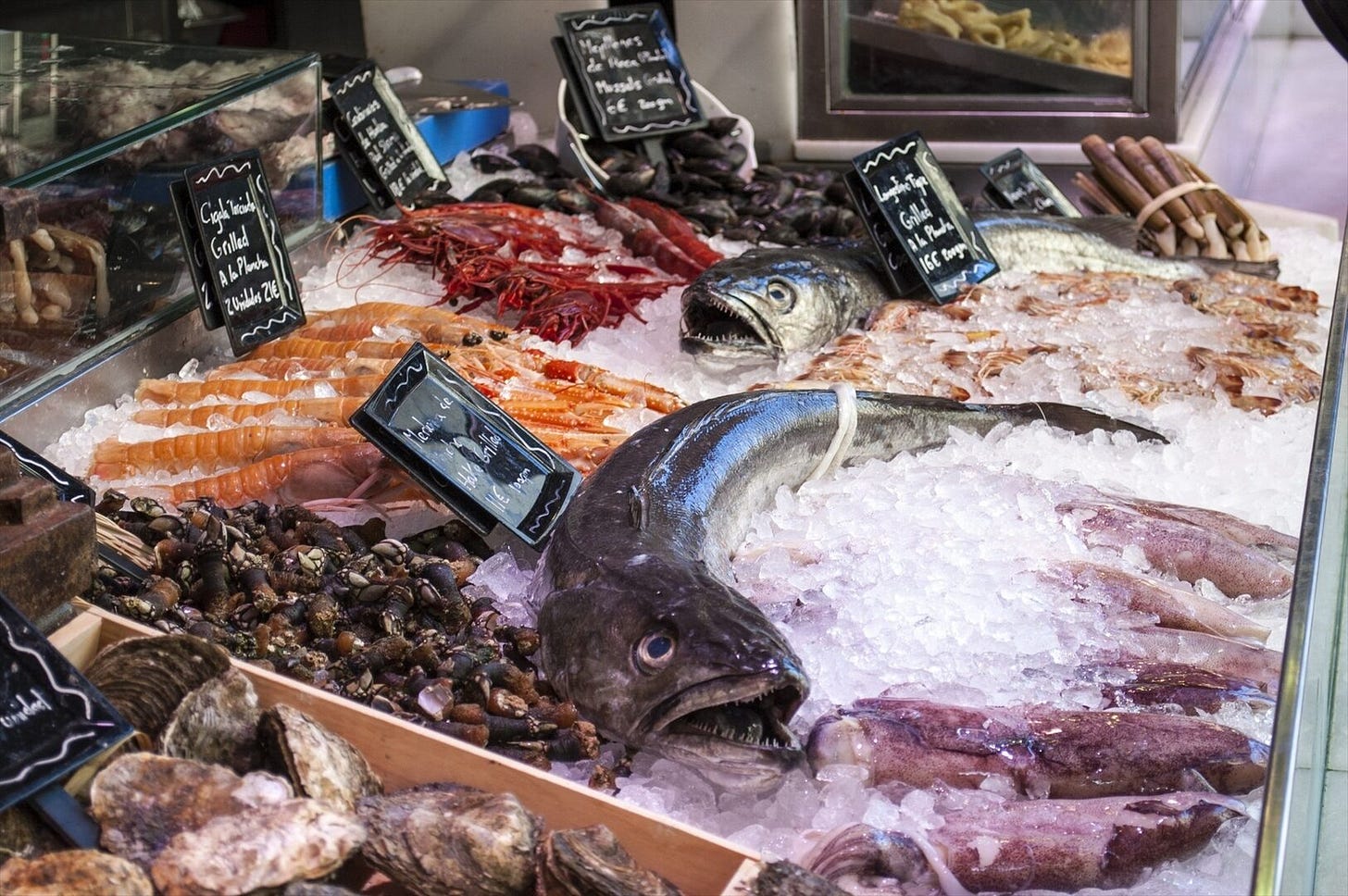They emptied the sea. Now entire communities are disappearing.
This is an extinction warning.
As we recently shared, a new investigation by the Environmental Justice Foundation has exposed how Europe and China are devastating West African marine ecosystems.
The Atlantic coastline of Senegal has become the launch point for a desperate and deadly exodus. Wooden boats now carry the dreams, despair, and final breaths of young men fleeing a destroyed ecosystem.
In 2024 alone, over 46,000 migrants arrived in Spain’s Canary Islands from West Africa. More than 3,000 never made it. Their boats drifted back to shore, empty, or worse: full of bodies.
The world calls it a migration crisis.
But we say it’s something else:
Collapse.
Scroll down to read the full story.
The sea used to breathe. Now it chokes.
The Atlantic off Senegal’s coast was once vibrant—a dense, thrumming marine forest of life. Sardinella, bonga shad, coastal demersals, octopus, rays, dolphins, seabirds. An ecosystem rich in complexity, balance, and resilience.
And people were part of it.
But that balance is gone.
More than half of Senegal’s fish populations are now in collapse. And with them go the birds, the mammals, the coral systems, the phytoplankton, and the humans.
Why?
Because foreign powers—Europe and China—are strip-mining a living ocean, turning it into a ghost.
Colonialism never left. It just rebranded.
Europe talks about border security. China talks about development. But off the coast of Senegal, their boats speak a different language: extraction.
Nearly half of Senegal’s licensed industrial vessels are foreign-controlled. Many fly Senegalese flags through shady “joint ventures,” but their owners sit in European boardrooms or Chinese ports.
Their trawlers drag steel nets across the seabed, bulldozing habitats that took centuries to form. They catch everything—juveniles, endangered species, vital forage fish—and dump what they can’t use.
And they do it in waters that are legally protected.
This is not fishing. It’s ecocide.
And it is displacing people from the ecosystems that shaped them—not just economically, but culturally, spiritually, biologically.
People aren’t leaving for Europe. They’re being expelled from nature.
The word “migrant” flattens reality. It makes it sound like people chose to leave.
But when an ecosystem collapses, you don’t migrate. You flee.
Because it’s not just about fish. It’s about home. About the sensory memory of salt air, of wood against hand, of rhythms handed down across generations. About knowing how the tides move and where the shoals gather.
What else can they do when the ocean that raised them now floats them toward European supermarkets in silence?
What happens to a web when you pull all the strands?
We think of collapse as sudden, but it often comes quietly.
It starts with fewer fish. Then fewer birds. Then plankton die-offs. Then reefs bleach. Then boats stop launching. Then markets go quiet. Then families borrow money for fuel and return with nothing. Then sons stop fishing. Then they disappear.
And then you’re left with a coast that remembers what it once was—but can no longer feed, shelter, or recognize its own people.
This is social extinction.
Europe and China aren’t just emptying the ocean. They are tearing apart the cultural and ecological fabric of West African coastal life.
The ones who survive carry grief like salt
In Tenerife, young men from Joal-Fadiouth and Fass Boye share apartments. They work in bakeries, wash dishes, sweep warehouses. But at night, they dream of Senegal.
They didn’t want Europe, they wanted to live in balance with the ocean.
But when the ecosystem dies, so does the story that shaped you.
Many left behind family they’ll never see again. Some watched friends die on the journey. Others will never tell their parents how bad it got.
“I miss my dad,” said Abdoulaye Sady. “I miss the sea. But there’s nothing left there for us. Nothing to return to.”
This is not just Senegal’s fight
If you live in Europe, this is your story too.
The seafood in your supermarket may have come from this collapse. The fishmeal that feeds your chicken. The tuna in your lunchbox. The shrimp in your paella.
You are connected to this ecosystem, even if your feet have never touched its sands.
So the question is: will you stand by as Europe and China extinguish cultures in exchange for calories?
Or will you act?
What you can do
Stop treating collapse as background noise. Talk about it. Name the actors. Don’t let “migration” be used to cover up ecological injustice.
Demand ocean justice. Wherever you are, push your governments to end opaque fishing deals. Ban bottom trawling in vulnerable zones. Force transparency on joint ventures and foreign fleets.
Support community-led conservation. Indigenous and local stewardship isn’t just ethical. It works. It rebuilds ecosystems from the ground up.
Remember this isn’t just about fish. It’s about culture. It’s about place. It’s about the right to belong where you were born.
If we let industries rewrite the map of the ocean, then coastlines will become corridors of exile.
And the sea that once gave life will only carry the dead.
Stay loud, stay informed, stay active.










